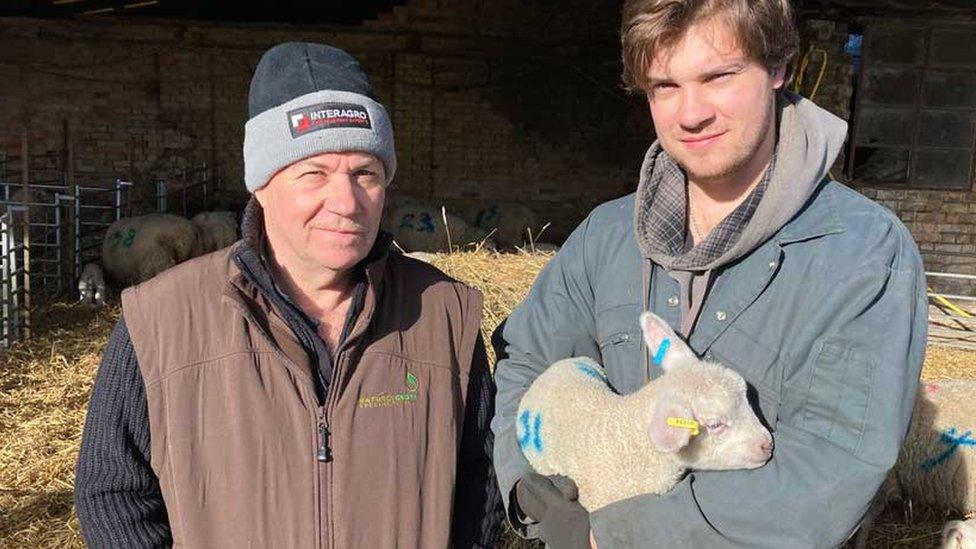Cattle farmer fears herd sell-off after winter flooding
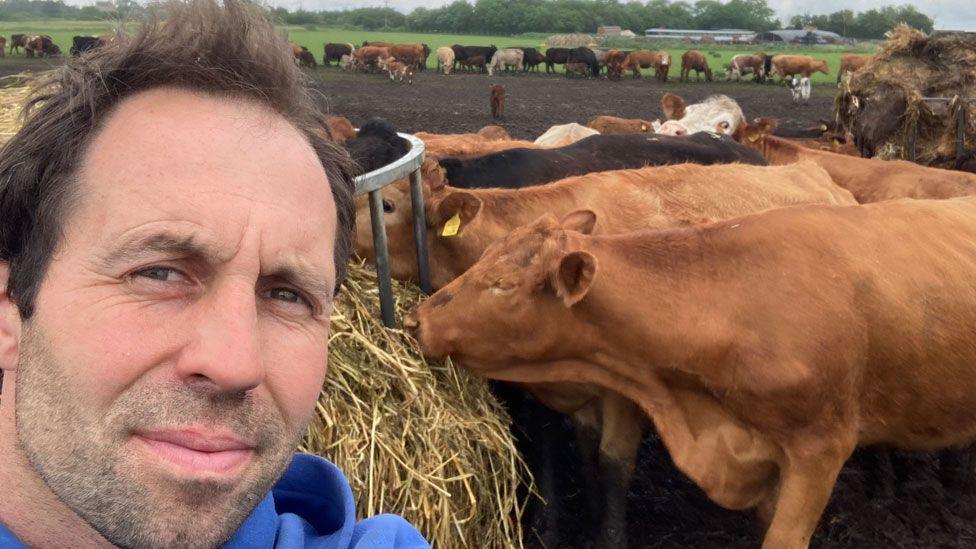
Lee Smith usually grazes his cattle on the Ouse Washes until October, and also makes silage from its grasses to see him through the winter
- Published
A farmer unable to graze his cattle on a nature reserve due to the "incredibly wet winter" fears he may have to sell off his herd.
About 2,500 cattle usually access grasslands at RSPB Ouse Washes, near Manea, Cambridgeshire, from May to October, but it is currently under water.
Lee Smith, from Coveney, said as a result he is running out of feed for his 400-strong herd of cows and calves.
RSPB site manager Jonathan Taylor has previously said "the whole ecosystem" of the area was reliant on grazing cattle.
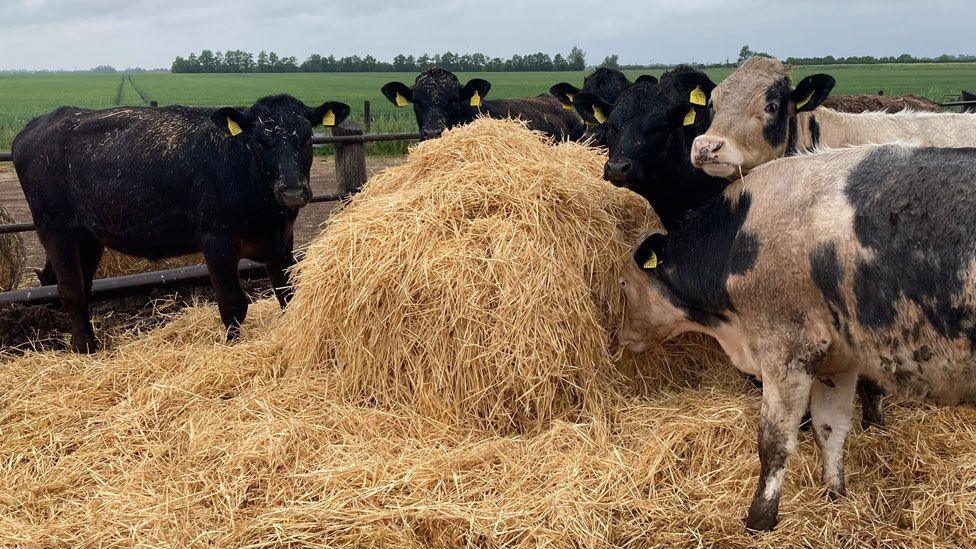
About half Mr Smith's cattle are out in two paddocks on his farm, usually kept for hay making for winter fodder, while the rest are still under cover
"If we don't get down there at all [this summer], I don't know what we'd have to do, cut back or sell the cattle - which would be a big blow when I'm trying to build up what I've got," said Mr Smith, a Cambridgeshire County Council farm tenant, external.
A prolonged period of wet weather meant livestock, which should have already been on the Ouse Washes, may not be able to access the area until at least the middle of June.
"But if we get an inch of rain in five weeks, we could be back to the same situation again, with the Washes flooded and without access," said Mr Smith, who also has a herd of about 2,500 sheep grazing either in his farm or nearby.
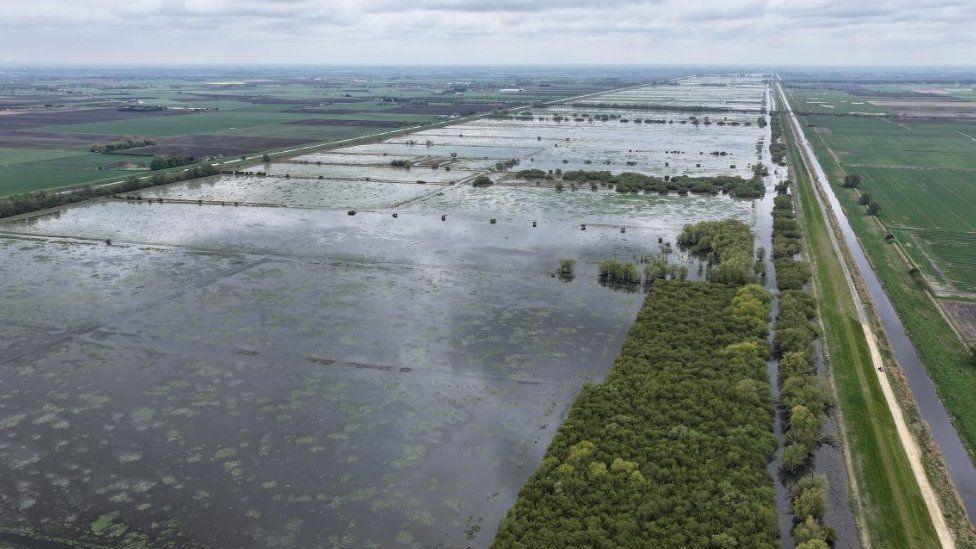
A vast area of Ouse Washes is flooded after prolonged periods of rain this year
The cattle herd remains on his 160 acres (64ha) farm but have nearly used up his silage (winter fodder made from summer grass).
Other feed sources such as grain, carrots or potatoes have gone up in price due to their scarcity and as a result of the wet weather.
A further worry is this is also the time of year when Mr Smith starts making silage and hay, also from the Ouse Washes, for next winter's fodder.
The National Farmers' Union (NFU) said the country had experienced "the wettest 18 months since 1836".
NFU president Tom Bradshaw said: "After months of discussions, it’s really good news that the government has listened to our calls for additional financial support for farm businesses.
"While we understand any decision will be delayed due to the general election, we will continue to work with the future government on this proposal."
The nature reserve which "drains the Fens" takes water from a catchment area stretching as far as Milton Keynes, about 60 miles (97km) away.
Cattle have been grazed at Ouse Washes for centuries and are an essential part of its conservation, helping to create the short grasses ideal for wildlife.
Follow Cambridgeshire news on Facebook, external, Instagram, external and X, external. Got a story? Email eastofenglandnews@bbc.co.uk, external or WhatsApp us on 0800 169 1830
Related topics
- Published27 May 2024
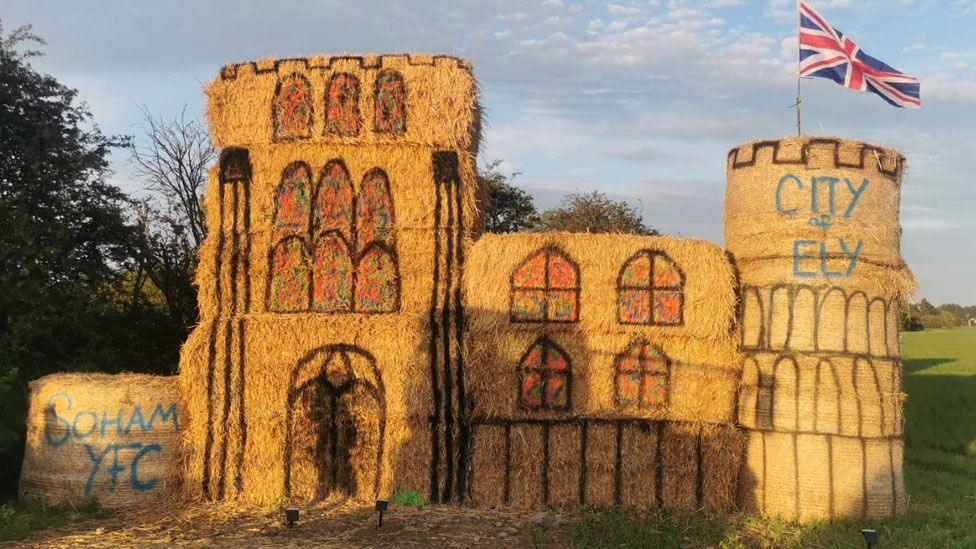
- Published10 May 2024
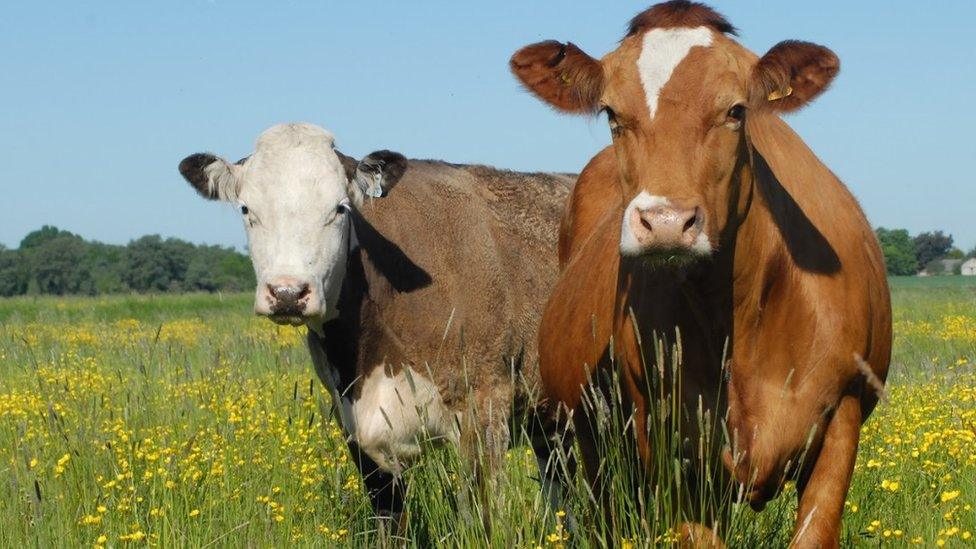
- Published11 April 2024
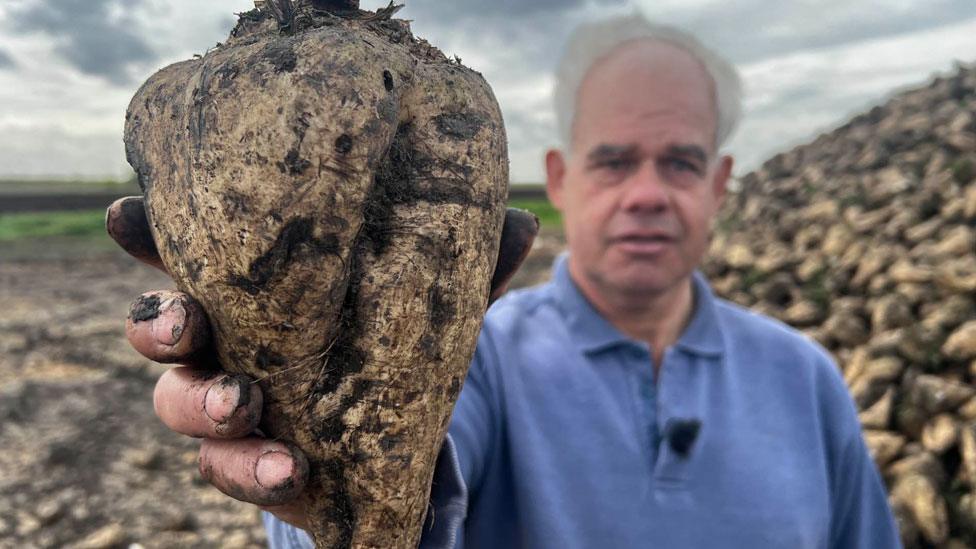
- Published4 April 2024
